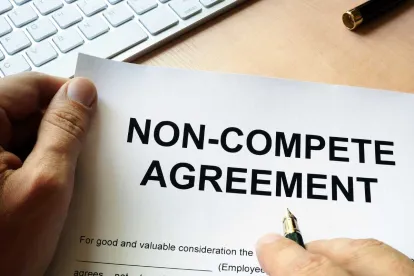On June 20, 2023, the New York Assembly passed a bill already passed by the Senate banning all post-employment noncompete agreements with workers. The bill is headed to Governor Kathy Hochul’s office for her approval. Governor Hochul has voiced her support for a much narrower, income-targeted ban on noncompetes, but she has not previously voiced support for this broad a measure. While it is possible she may decline to sign the ban and insist upon amendments, many expect her to sign it, particularly given the overwhelming vote it received in both legislative houses.
More specific details of the noncompete agreement ban include:
-
The ban has no compensation threshold or exception for executives.
-
The ban appears not to be retroactive since the bill it is amending states, “This act shall take effect on the thirtieth day after it shall have become a law and shall be applicable to contracts entered into or modified on or after such effective date,” and comments on the floor of the Assembly during last week’s debate and vote confirm that.
-
The ban appears focused on only traditional noncompetition agreements, despite the odd prefatory language stating, “Every contract by which anyone is restrained from engaging in a lawful profession, trade, or business of any kind is to that extent void.” The sentence that follows that pronouncement focuses on “non-compete agreement” (the defined term in the act); and the act expressly indicates that it is not intended to apply to certain non-solicitation provisions, confidentiality agreements, and agreements providing for a “fixed term of service,” provided that those agreements “do not otherwise restrict competition in violation of” the act.
-
The ban covers all employees and independent contractors (and, through the vague definition of “covered individual,” may include other service providers/consultants and even workers who are partners, members, or other equityholders).
The bill provides for a private right of action to void violative agreements with a two-year statute of limitations running from the later of “(i) when the prohibited non-compete agreement was signed; (ii) when the covered individual learns of the prohibited non-compete agreement; (iii) when the employment or contractual relationship is terminated; or (iv) when the employer takes any step to enforce the non-compete agreement.” The bill also enumerates statutory remedies, empowering courts to award liquidated damages of $10,000 per violation and other remedies, including “lost compensation, damages, reasonable attorneys’ fees and costs,” and injunctive relief.
Significantly, the act does not have any express carveouts allowing the use of noncompete provisions in sale-related agreements with workers or in equity plans or awards, and it does not expressly address restrictions in LLC agreements or redemption agreements with workers who are equityholders. Because the act applies only to noncompete agreements with “covered individuals”—workers and other service providers—the act would appear not to impact noncompete agreements with passive investors and other non-service-provider equityholders.
It is unclear whether noncompete provisions in the context of “garden leave” arrangements (i.e., where employees are paid not to compete) are subject to the ban and whether they would be permitted as long as the employee remains on payroll during that period. It is also unclear whether “forfeiture for competition” and claw-back or repayment provisions in agreements will remain enforceable under the state’s longstanding common law “employee choice” doctrine, which would enforce such provisions (at least in the context of a voluntary termination of employment) without regard to their reasonableness given that they provide the employee with a choice to either compete and forfeit the compensation/equity provided or retain the financial benefit and not compete.
If approved by Governor Hochul, the noncompete agreement ban will have widespread implications. Any developments that may play out in the wake of this ban remain to be determined.




 />i
/>i
